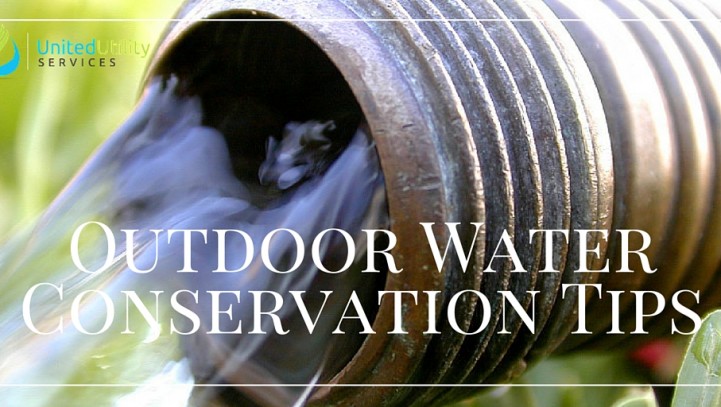Outdoor Water Conservation Tips
- Many properties overwater their lawns without realizing it. Generally, lawns only need to be watered every 10 to 14 days during winter, while the summer season means more frequent watering done every 5 to 7 days.
- Sprinkler positioning can lead to wasted water. Position them so that water lands on the greenery, and not on the street, sidewalk or walkways.
- Timing when you’ll water your lawn is also important. When lawns are watered during the early morning or when the temperature plus wind speed are low, this result in less water loss due to evaporation.
- Refrain from clipping your lawn too close. When a lawn is cut higher, it helps grass grow deeper and holds soil moisture better.
- Routinely inspect timing devices and sprinkler systems so you can be sure that they are operating as they should.
- Plant drought-tolerant shrubs, grasses, trees and ground covers. Once grown, they don’t require watering too frequently and these tend to survive dry periods without watering at all. Group plants with similar water needs together.
- Refrain from over fertilizing your lawn, because its application increases the need for water. Choose fertilizer that contains water-insoluble or slow-release forms of nitrogen.
- When cleaning your sidewalk or driveway, use a broom to clean debris from the areas. Avoid hosing them down because this can waste hundreds of gallons of water.
- Don’t leave hoses or sprinklers unattended. These can waste more than 500 gallons in only a few hours so avoid letting it run for too long. Use a timer to remind yourself to shut it off.
- Inspect all spigots, connectors and hoses regularly.
- Place hose washers between water hoses and spigots to eliminate any leaks.
- If your property has a swimming pool, install a pool filter that conserves water. Traditional pool filters use anywhere from 180 to 250 gallons or more of water.




